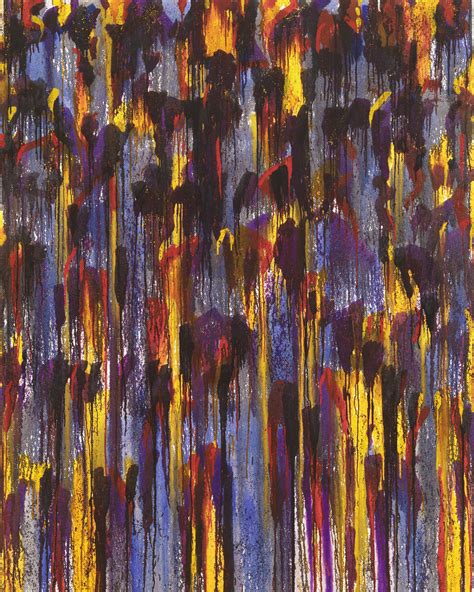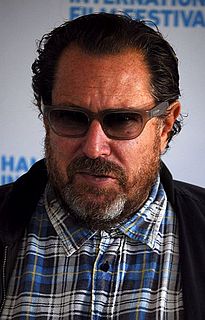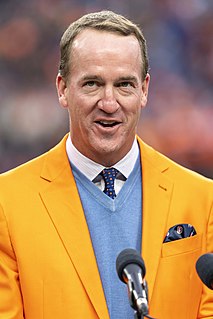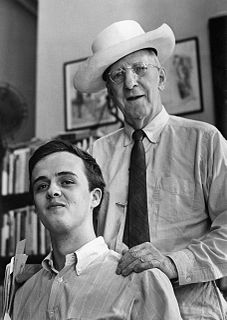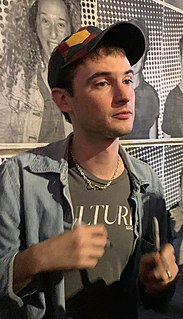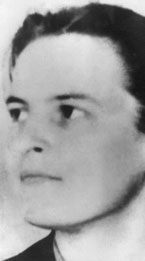A Quote by Pierre Coupey
I think part of being an artist is having the ability to define your own responsibilities. I certainly wouldn't prescribe any. As far as I'm concerned, my biggest responsibility is to my own imagination. We're all conduits. Art preceded me, and it'll be here long after I'm gone.
Related Quotes
So far as I am concerned, poetry and every other art was and is and forever will be strictly and distinctly a question of individuality... If poetry is your goal, you've got to forget all about punishments and all about rewards and all about self-styled obligations and duties and responsibilities etcetera ad infinitum and remember one thing only: that it's you - nobody else - who determine your destiny and decide your fate. Nobody else can be alive for you; nor can you be alive for anybody else... There's the artist's responsibility; and the most awful responsibility on earth.
I don't think people were put here to be happy. I think if you decide to be an artist or a writer, you automatically accept the responsibility of being alone. However, after your 50 or 60 years are up you'll be able to look back and see this output that you've done that will endure long after you're gone, and will continue to fill the minds of millions of people.
Doubt--because doubt is not a sin, it is a sign of your intelligence. You are not responsible to any nation, to any church, to any God. You are responsible only for one thing, and that is self knowledge. And the miracle is, if you can fulfill this responsibility, you will be able to fulfill many other responsibilities without any effort. The moment you come to your own being, a revolution happens in your vision. Your whole outlook about life goes through a radical change. You start feeling new responsibilities--not as some thing to be done, not as a duty to be fulfilled, but as a joy to do.
The most common mistake you'll make is forgetting to keep your own scorecard. Very little at work reinforces your ability to do this, so you will have to be vigilant. When evaluators give you an assessment, they are just guessing at who you are; they certainly are not the ones who know your potential. They can rate you and influence you, but they don't get to define you. That's your most honorable assignment: to define, every day through the way you deliver your work, the scope and nature of your inherent abilities.
I believe art is utterly important. It is one of the things that could save us. We don't have to rely totally on experience if we can do things in our imagination.... It's the only way in which you can live more lives than your own. You can escape your own time, your own sensibility, your own narrowness of vision.
When you're pregnant, you can think of nothing but having your own body to yourself again; yet after giving birth you realize that the biggest part of you is now somehow external, subject to all sorts of dangers and disappearance, so you spend the rest of your life trying to figure out how to keep her close enough for comfort. That's the strange thing about being a mother: Until you have a baby, you don't even realize how much you were missing one.
I deal with students every day - from China, Germany, the United States, Hong Kong and Taiwan. And I've noticed that the Chinese students are the least trained in having a sense of aesthetics. They lack any ability to sense what is beautiful or what is proper. They can be learned and skillful, but they lack the ability to make their own free judgment. It is really sad to see young adults of 20, 25 years who were never taught to make their own decisions. People who can't do that don't get a sense of responsibility. And if you lack a sense of responsibility, you push the blame onto the system.
K. Dot was a kid who was trying to find himself in music, finding trends, um, bending towards - ready to bend towards what the industry was telling me to do and after you mature at a certain time in your life, you come into your own...your own niche, your own personality, not only as an artist but as a person.
The denial of any distinction between foreseen and intended consequences, as far as responsibility is concerned, was not made by Sidgwick in developing any one 'method of ethics'; he made this important move on behalf of everybody and just on its own account; and I think it plausible to suggest that this move on the part of Sidgwick explains the difference between old-fashioned Utilitarianism and the consequentialism, as I name it, which marks him and every English academic moral philosopher since him.
